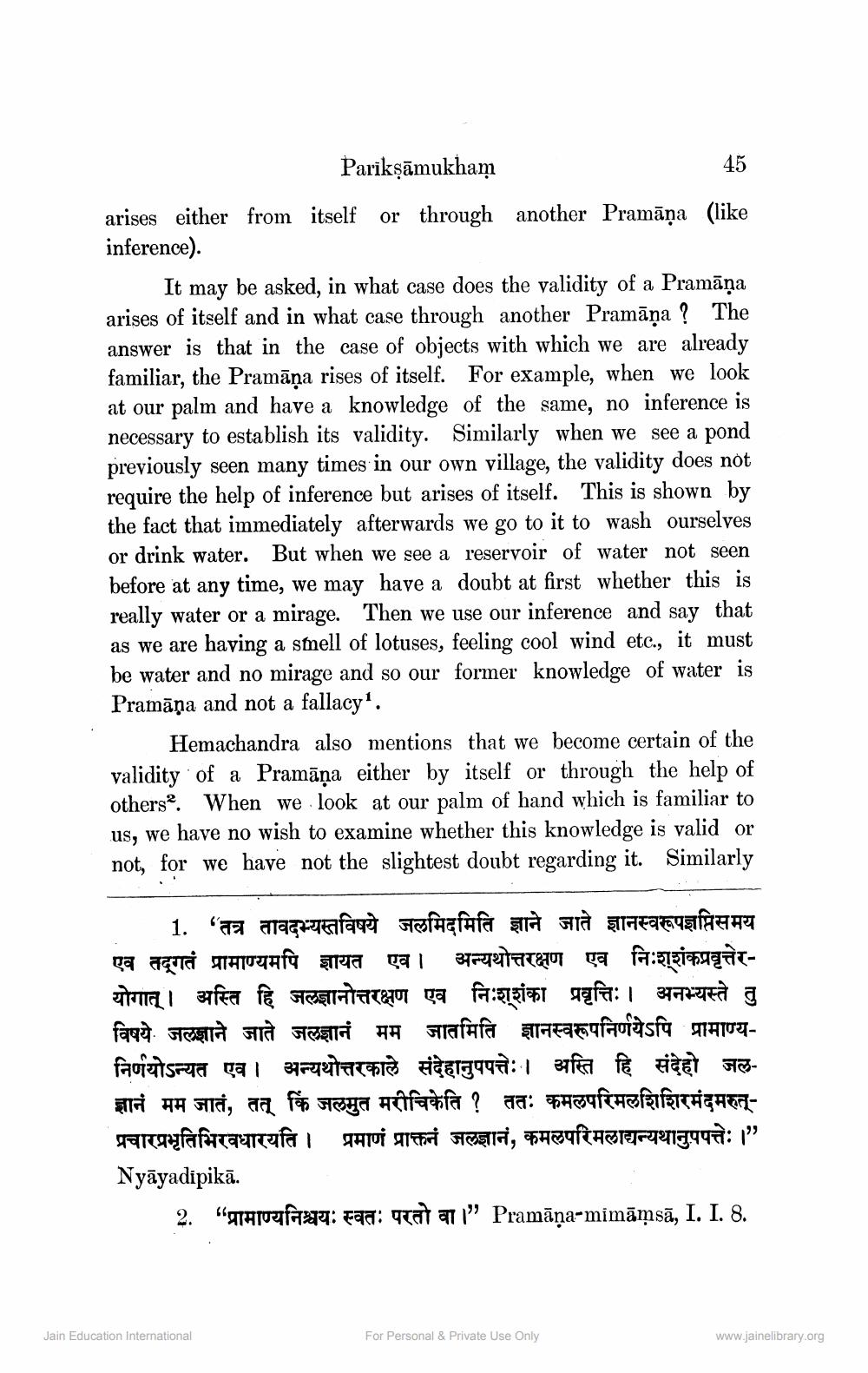________________
Parikṣāmukham arises either from itself or through another Pramāņa (like inference).
It may be asked, in what case does the validity of a Pramāņa arises of itself and in what case through another Pramāņa ? The answer is that in the case of objects with which we are already familiar, the Pramana rises of itself. For example, when we look at our palm and have a knowledge of the same, no inference is necessary to establish its validity. Similarly when we see a pond previously seen many times in our own village, the validity does not require the help of inference but arises of itself. This is shown by the fact that immediately afterwards we go to it to wash ourselves or drink water. But when we see a reservoir of water not seen before at any time, we may have a doubt at first whether this is really water or a mirage. Then we use our inference and say that as we are having a smell of lotuses, feeling cool wind etc., it must be water and no mirage and so our former knowledge of water is Pramāṇa and not a fallacy'.
Hemachandra also mentions that we become certain of the validity of a Pramāņa either by itself or through the help of others?. When we look at our palm of hand which is familiar to us, we have no wish to examine whether this knowledge is valid or not, for we have not the slightest doubt regarding it. Similarly
1. 'तत्र तावदभ्यस्तविषये जलमिदमिति ज्ञाने जाते ज्ञानस्वरूपज्ञप्तिसमय एव तद्गतं प्रामाण्यमपि ज्ञायत एव। अन्यथोत्तरक्षण एव निःशशंकप्रवृत्तेरयोगात्। अस्ति हि जलज्ञानोत्तरक्षण एव निःश्शंका प्रवृत्तिः। अनभ्यस्ते तु विषये जलज्ञाने जाते जलज्ञानं मम जातमिति ज्ञानस्वरूपनिर्णयेऽपि प्रामाण्यनिर्णयोऽन्यत एव । अन्यथोत्तरकाले संदेहानुपपत्तेः। अस्ति हि संदेहो जलज्ञानं मम जातं, तत् किं जलमुत मरीचिकेति ? ततः कमलपरिमलशिशिरमंदमरुत्प्रचारप्रभृतिभिरवधारयति। प्रमाणं प्राक्तनं जलज्ञानं, कमलपरिमलाद्यन्यथानुपपत्तेः ।" Nyāyadipikā.
2. "प्रामाण्यनिश्चयः स्वतः परतो वा।" Pramāna-mimamsa, I. I. 8.
Jain Education International
For Personal & Private Use Only
www.jainelibrary.org




